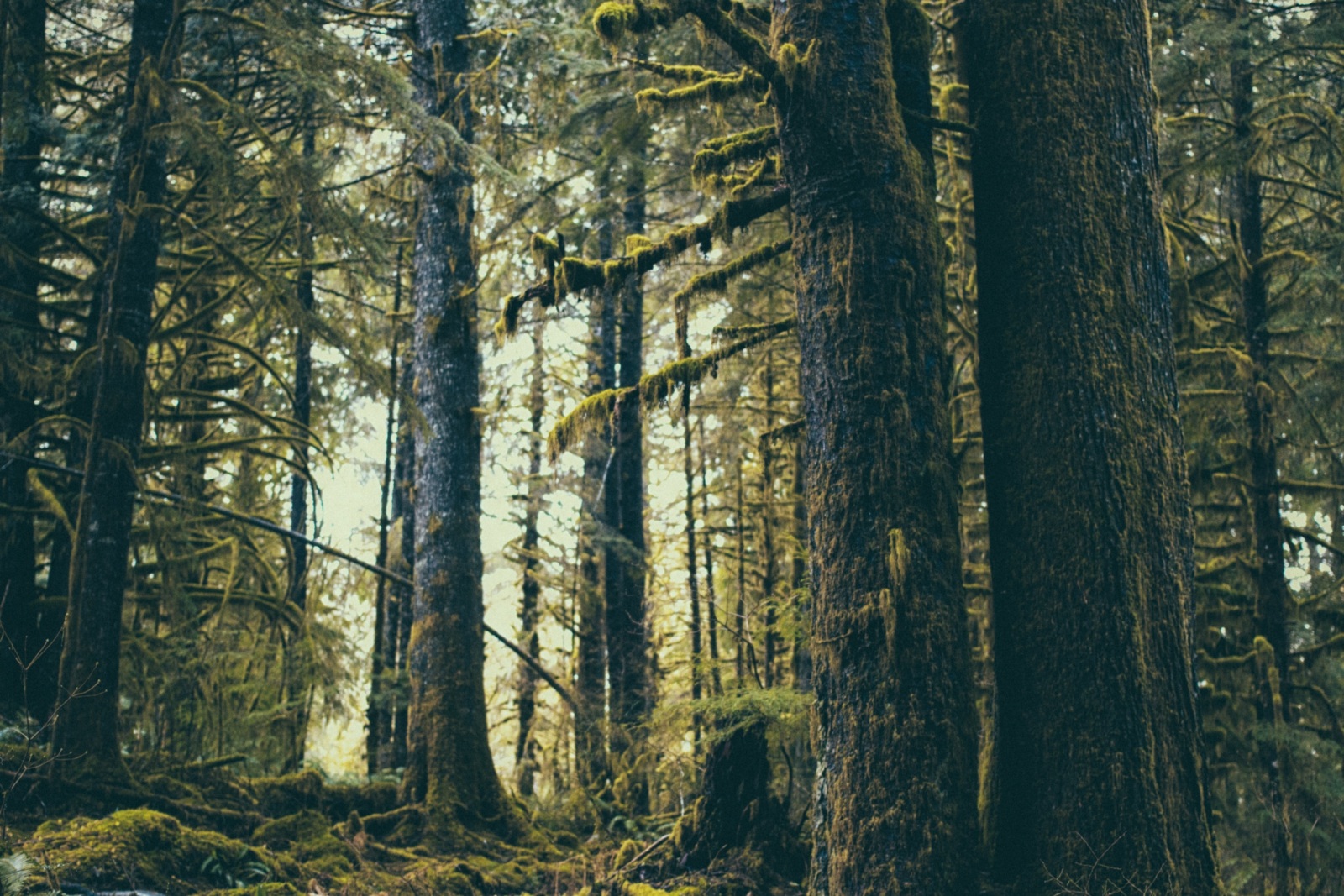
Which big toilet paper brands are best for our forests?
Amazon, Costco, Walmart and other major toilet paper brands can and should do more to prevent forest degradation
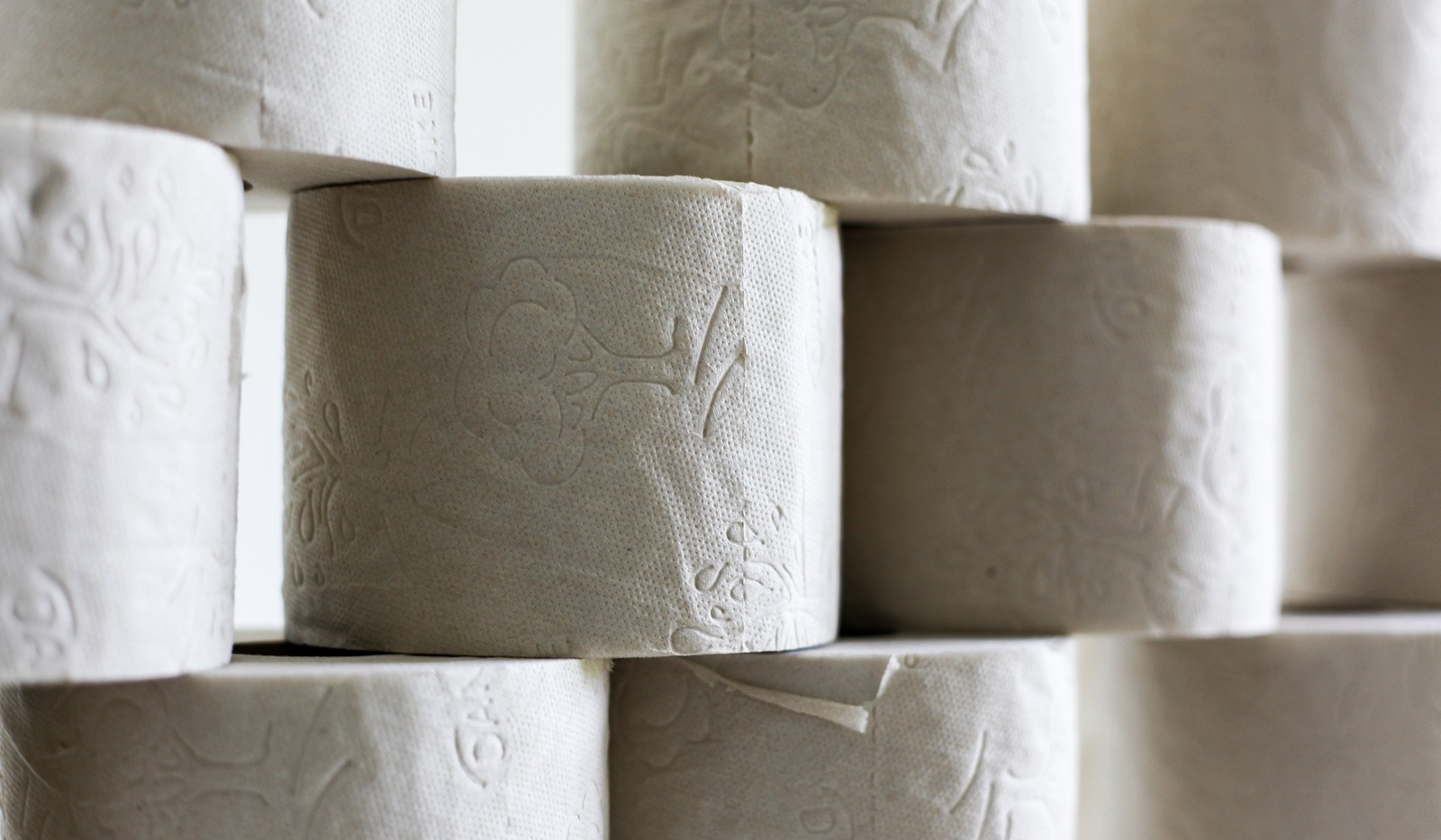
Most major toilet paper brands, including the one you might have stocked up in your bathroom, aren’t doing enough to prevent forest degradation.
Trees that have grown for decades in the boreal forest (the largest intact forest on Earth, stretching from Newfoundland to Alaska) are chopped down to make tissue products that are used for mere seconds.
Our research partners at Environment America Research & Policy Center asked six companies to reduce the amount of virgin wood pulp fibers in their tissue products by 50% or more by 2025, among other actions. One year later, they made a progress report on the companies’ actions to reduce their impact on forests.
See how the companies stacked up:
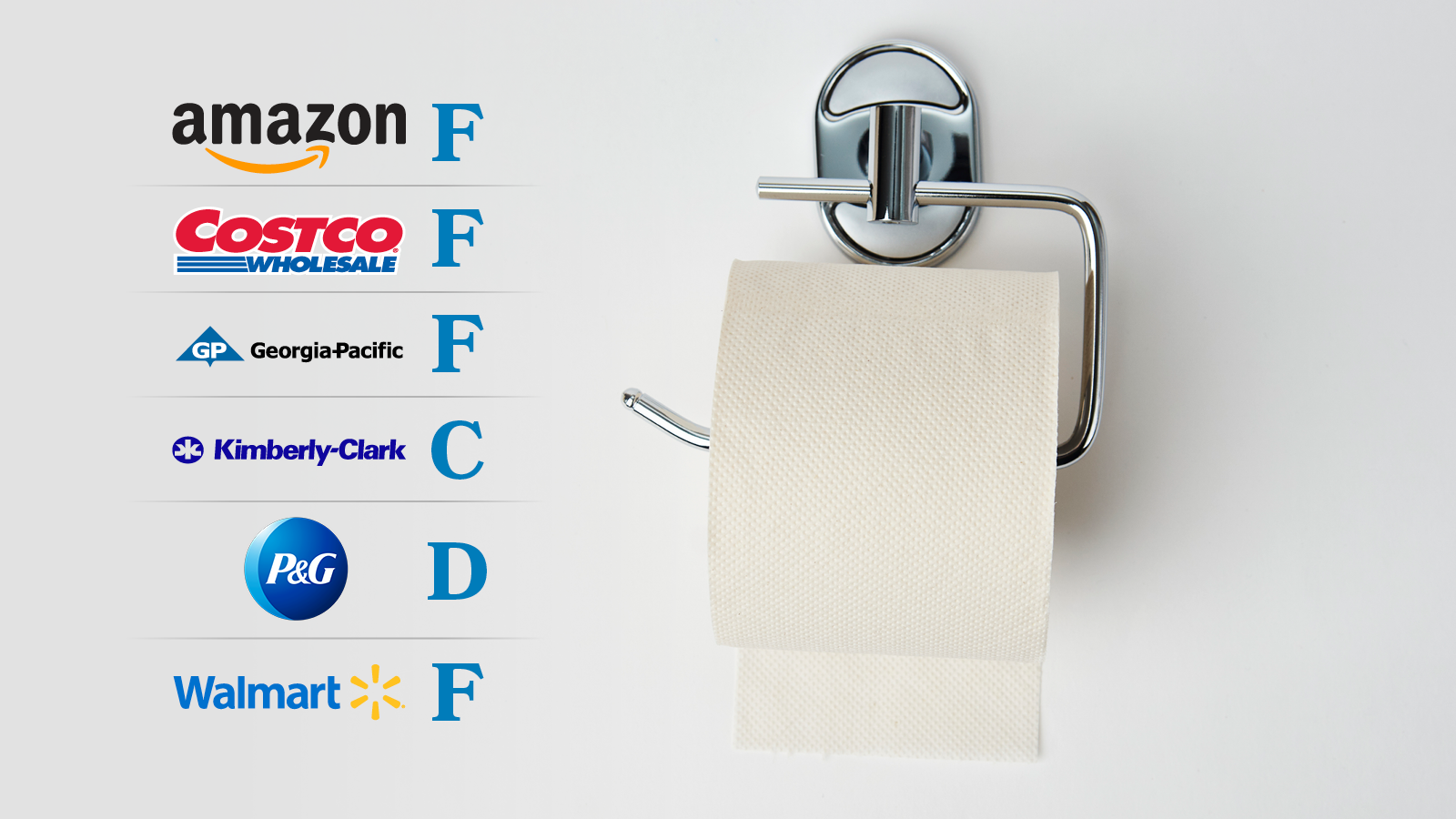
Amazon, Costco, Walmart and Georgia-Pacific received “F”s. Procter & Gamble received a “D.” Kimberly-Clark received a “C.”
The vast majority of tissue products, such as toilet paper, facial tissues and paper towels, are made of virgin wood fibers, which are fibers that come from newly harvested trees. Logging trees from our most precious forests disrupts and degrades the homes of lynx, caribou, bison and hundreds of other species.
Which toilet paper companies were softer on the environment?
One of the reasons Amazon received an “F” grade is because its Presto! brand is made of virgin wood fibers. Costco’s Kirkland signature tissue products are also made from newly harvested trees, earning them an “F” grade as well.
Of the companies we reviewed, Kimberly-Clark received the highest grade. While it still has more work to do to become sustainable, the maker of Cottonelle, Scott and Kleenex has already committed to reduce its use of “natural forest fibers” by 50% by 2025.
Find out how the other companies did by reading the full report card.
These companies still have a long way to go to protect our forests. That’s why Environment America Research & Policy Center is continuing its corporate campaigns to shift the market toward forest-free toilet paper and other products.
And we don’t have time to lose.
Each year, 1 million acres of boreal forest are logged in Canada. That’s equal to 1.5 football fields worth of forest each minute.
It’s urgent that these companies make changes to their paper products. Thankfully, there are plenty of ways for corporations to do better. There are several types of sustainable fiber options these companies could use instead, including fibers made of recycled paper, bamboo, hemp and wheat straw.
Already, tens of thousands of people have signed petitions to these tissue brands, urging them to protect the boreal and all our planet’s beautiful forest ecosystems. Only by coming together to raise our voices can we make progress to defend forests from logging.
Topics
Author
Ellen Montgomery
Director, Public Lands Campaign, Environment America
Ellen runs campaigns to protect America's beautiful places, from local beachfronts to remote mountain peaks. Prior to her current role, Ellen worked as the organizing director for Environment America’s Climate Defenders campaign. Ellen lives in Denver, where she likes to hike in Colorado's mountains.
Find Out More
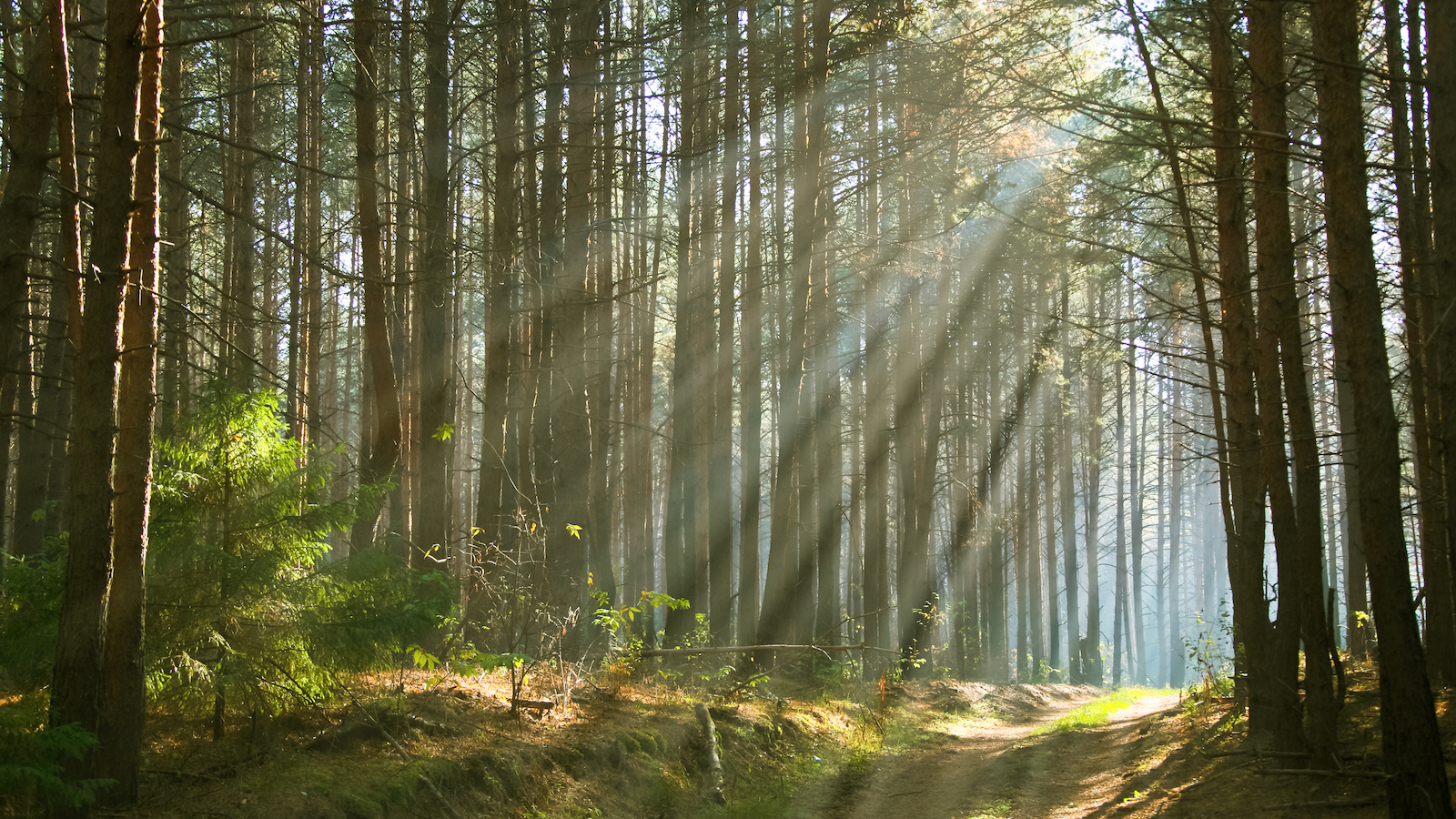
What can we do to keep the boreal forest from being flushed away?
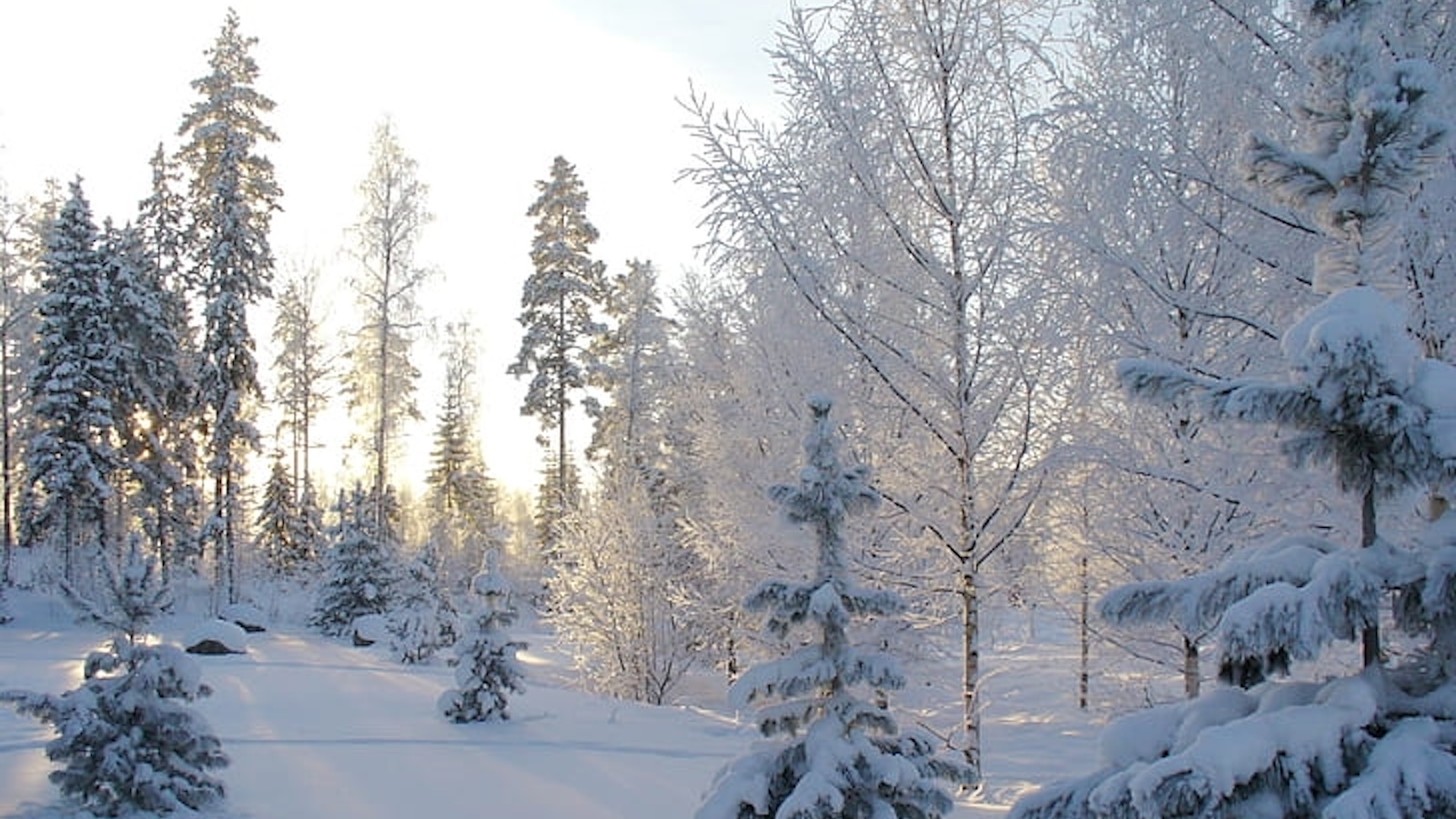
Five of the biggest wins for wildlife and wild places in 2023

Five things to toast this holiday season
